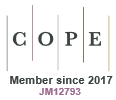Isotopic fractionation – chemical v. environmental perspective
Piotr PanethInstitute of Applied Radiation Chemistry, Faculty of Chemistry, Technical University of Lodz, Zeromskiego 116, P-90-924 Łódź, Poland. Email: paneth@p.lodz.pl

Piotr Paneth received his professorship title from the President of Poland in 1996. He is currently serving as a Dean of the Faculty of Chemistry at the Technical University of Łódź, Poland. His entire scientific career is connected with employing isotope effects in studies of chemical and enzymatic reactions using theoretical and experimental tools, as well as method and software development. He has published over 130 scientific articles. He co-authored a book on application of Isotope Effects in the Chemical, Geological and Bio Sciences. He is recipient of Svenska Institutet (Sweden), CNRS (France), Fulbright (USA) and JSPS (Japan) scholarship awards. |
Environmental Chemistry 9(1) 67-68 https://doi.org/10.1071/EN11110
Submitted: 2 September 2011 Accepted: 26 November 2011 Published: 31 January 2012
References
[1] M. Elsner, L. Zwank, D. Hunkeler, R. P. Schwarzenbach, A new concept linking observable stable isotope fractionation to transformation pathways of organic pollutants. Environ. Sci. Technol. 2005, 39, 6896.| A new concept linking observable stable isotope fractionation to transformation pathways of organic pollutants.Crossref | GoogleScholarGoogle Scholar | 1:CAS:528:DC%2BD2MXmvFSrs74%3D&md5=6738bdca106f89a88f6c6a9bb9f0af0fCAS |
[2] M. Wolfsberg, A. Van Hook, P. Paneth, Isotope Effects in the Chemical, Geological and Bio Sciences 2010 (Springer: London).
[3] M. Thullner, M. Kampara, H.-H. Richnow, H. Harms, L. Wick, Impact of bioavailability restrictions on microbially induced stable isotope fractionation: 1. Theoretical calculation. Environ. Sci. Technol. 2008, 42, 6544.
| Impact of bioavailability restrictions on microbially induced stable isotope fractionation: 1. Theoretical calculation.Crossref | GoogleScholarGoogle Scholar | 1:CAS:528:DC%2BD1cXptVOmt7c%3D&md5=d307a86abc152903cef2f89ebd2563f2CAS |
[4] P. Adamczyk, P. Paneth, Theoretical evaluation of isotopic fractionation factors in reactions of benzene, phenol and chlorophenols. J. Mol. Model. 2011, 17, 2285.
| Theoretical evaluation of isotopic fractionation factors in reactions of benzene, phenol and chlorophenols.Crossref | GoogleScholarGoogle Scholar | 1:CAS:528:DC%2BC3MXhtFGls7zK&md5=7dc69f583e63d1acd517b3e681324dc2CAS |
[5] A. Lewandowicz, J. Jemielity, M. Kanska, J. Zon, P. Paneth, Tritium secondary kinetic isotope effect on phenylalanine ammonia-lyase-catalyzed reaction. Arch. Biochem. Biophys. 1999, 370, 216.
| Tritium secondary kinetic isotope effect on phenylalanine ammonia-lyase-catalyzed reaction.Crossref | GoogleScholarGoogle Scholar | 1:CAS:528:DyaK1MXmt12itb0%3D&md5=dc941a8027afcca3abc2d8de41108986CAS |
[6] T. P. Silverstein, Nonlinear and linear regression applied to concentration versus time kinetic data from Pinhas’s sanitizer evaporation project. J. Chem. Educ. 2011, 88, 1589.
| 1:CAS:528:DC%2BC3MXhtValsb7K&md5=79302e443080869b1f89d08d414b1378CAS |
[7] J. Y.-P. Tong, P. E. Yankwich, Calculation of experimental isotope effects for pseudo first-order irreversible reactions. J. Phys. Chem. 1957, 61, 540.
| Calculation of experimental isotope effects for pseudo first-order irreversible reactions.Crossref | GoogleScholarGoogle Scholar | 1:CAS:528:DyaG2sXnsFalug%3D%3D&md5=7b5c3b8465db47c0476bada57f449e93CAS |
[8] D. Hunkeler, B. M. Van Breukelen, M. Elsner, Modeling chlorine isotope trends during sequential transformation of chlorinated ethenes. Environ. Sci. Technol. 2009, 43, 6750.
| Modeling chlorine isotope trends during sequential transformation of chlorinated ethenes.Crossref | GoogleScholarGoogle Scholar | 1:CAS:528:DC%2BD1MXptVCksbk%3D&md5=63169165baf4a070b2108cc91fbe98a8CAS |
[9] H. Penning, C. J. Cramer, M. Elsner, Rate-dependent carbon and nitrogen kinetic isotope fractionation in hydrolysis of isoproturon. Environ. Sci. Technol. 2008, 42, 7764 .and references therein
| Rate-dependent carbon and nitrogen kinetic isotope fractionation in hydrolysis of isoproturon.Crossref | GoogleScholarGoogle Scholar | 1:CAS:528:DC%2BD1cXht1ahs7rE&md5=a4cab5e295893ac22ae728b9c7093abaCAS |
[10] Z. J. Kamiński, P. Paneth, J. Rudziński, A study on the activation of carboxylic acids by means of 2-chloro-4,6-dimethoxy-1,3,5-triazine and 2-chloro-4,6-diphenoxy-1,3,5-triazine. J. Org. Chem. 1998, 63, 4248.
| A study on the activation of carboxylic acids by means of 2-chloro-4,6-dimethoxy-1,3,5-triazine and 2-chloro-4,6-diphenoxy-1,3,5-triazine.Crossref | GoogleScholarGoogle Scholar |


